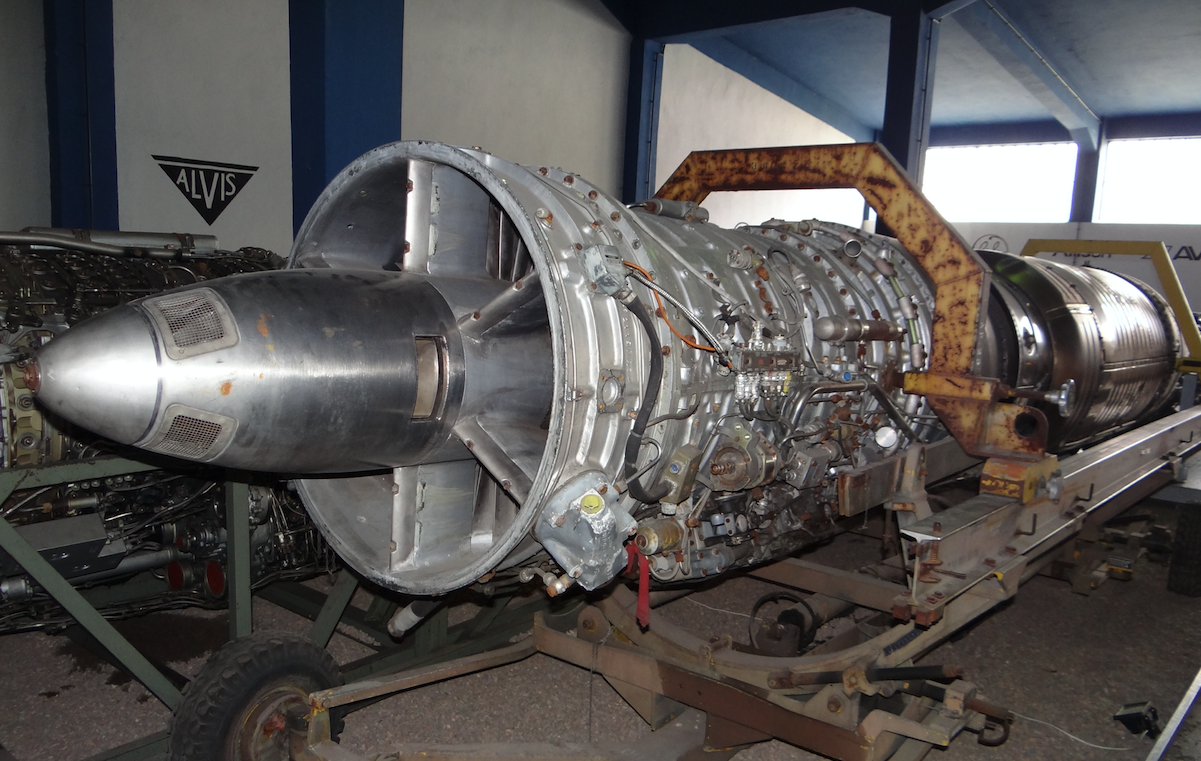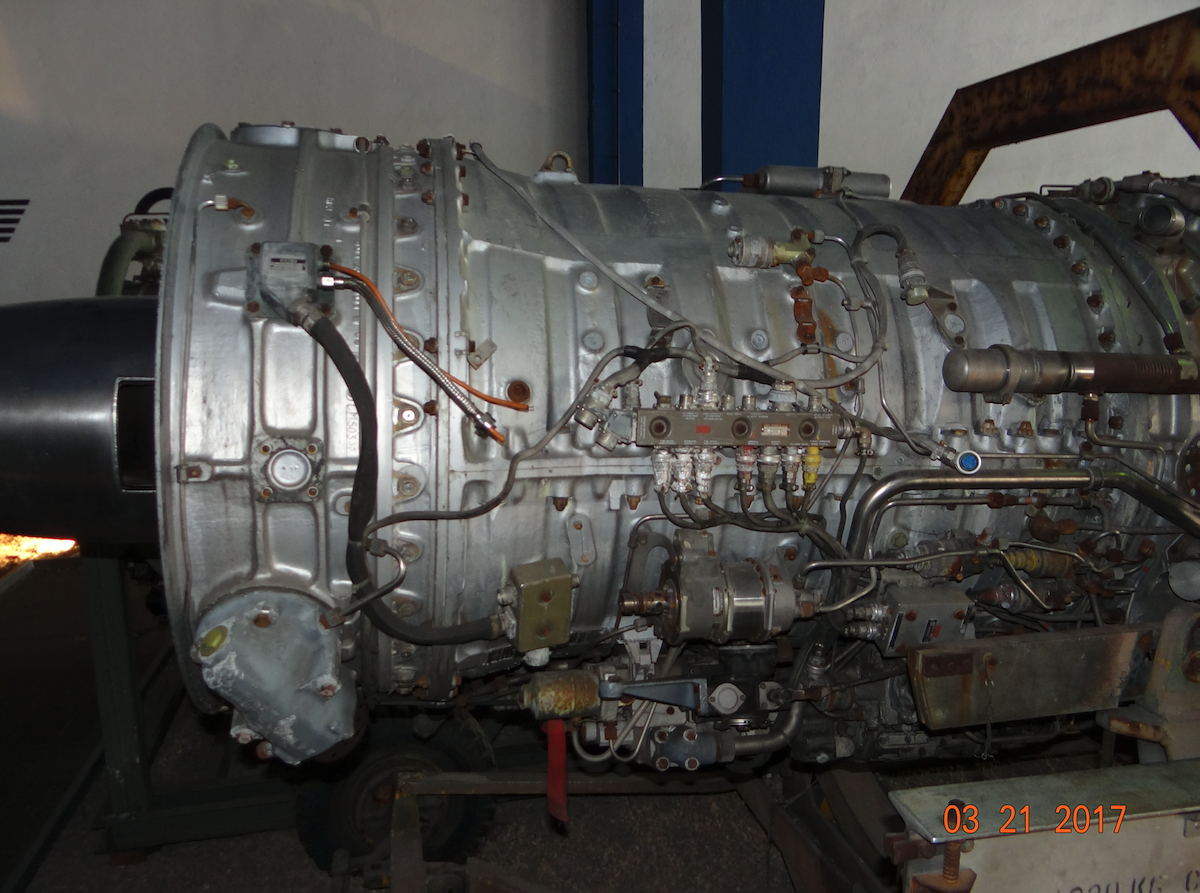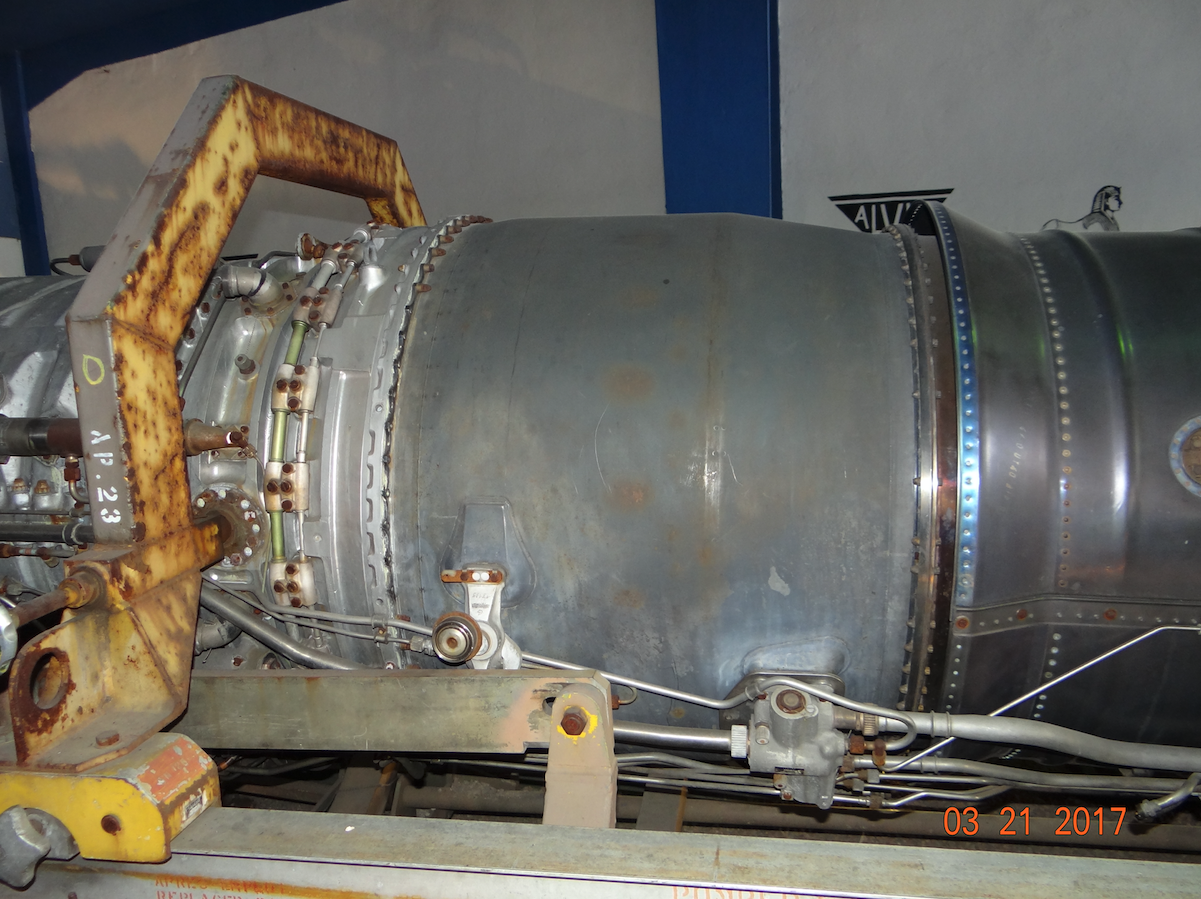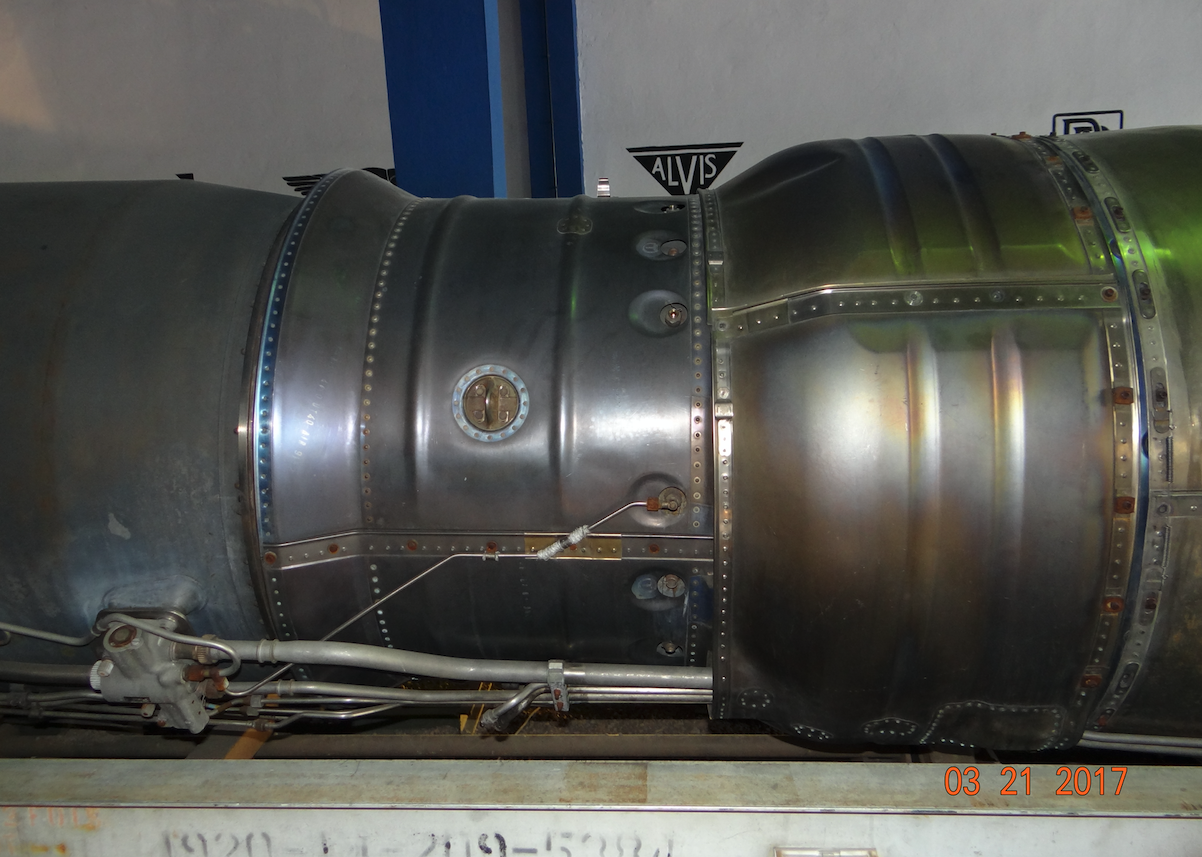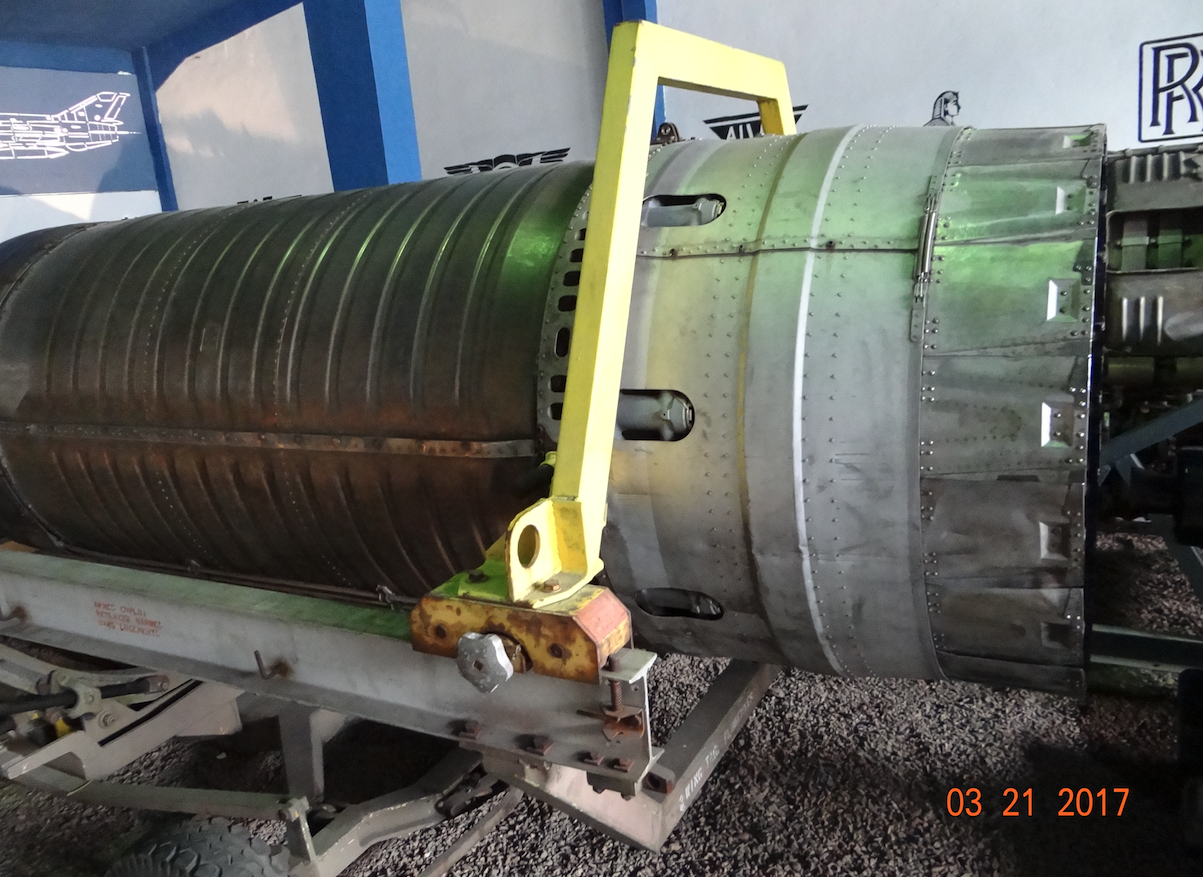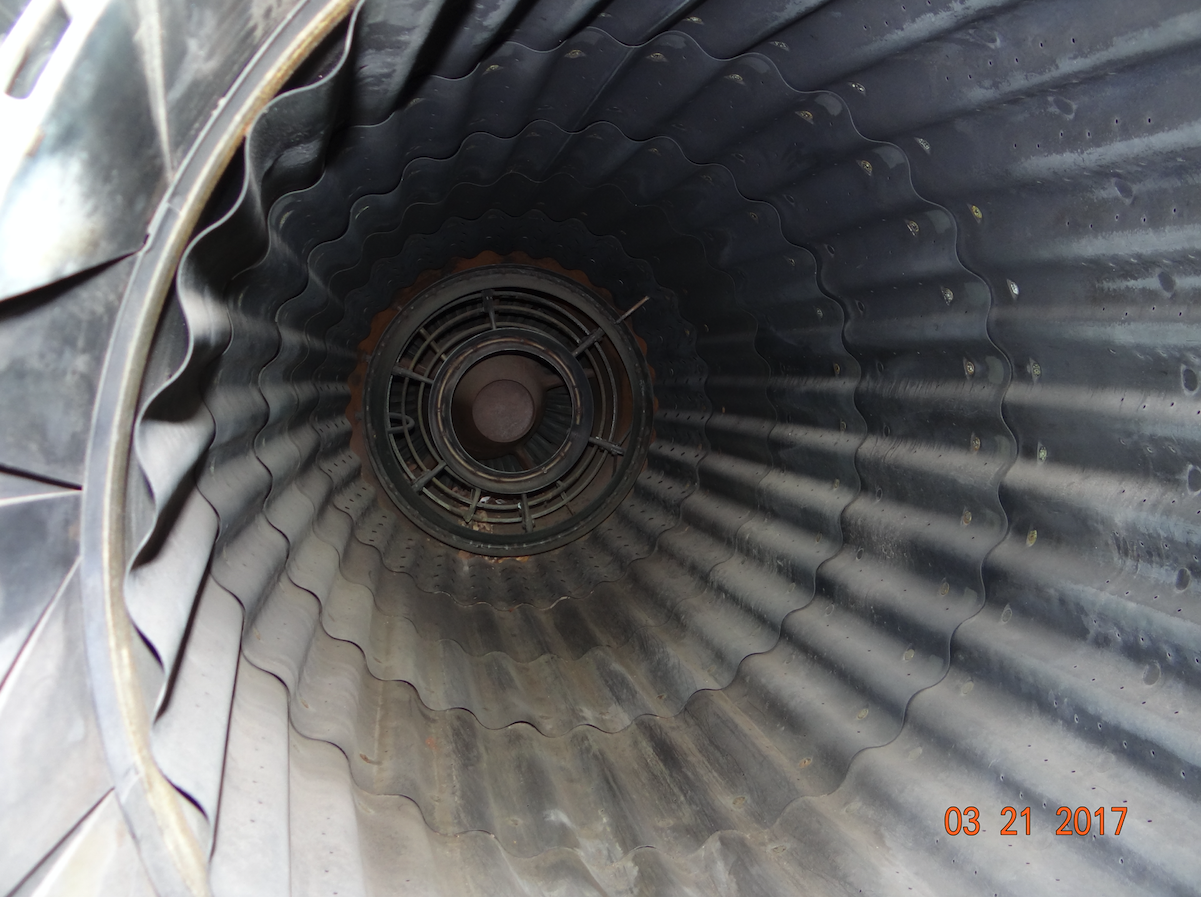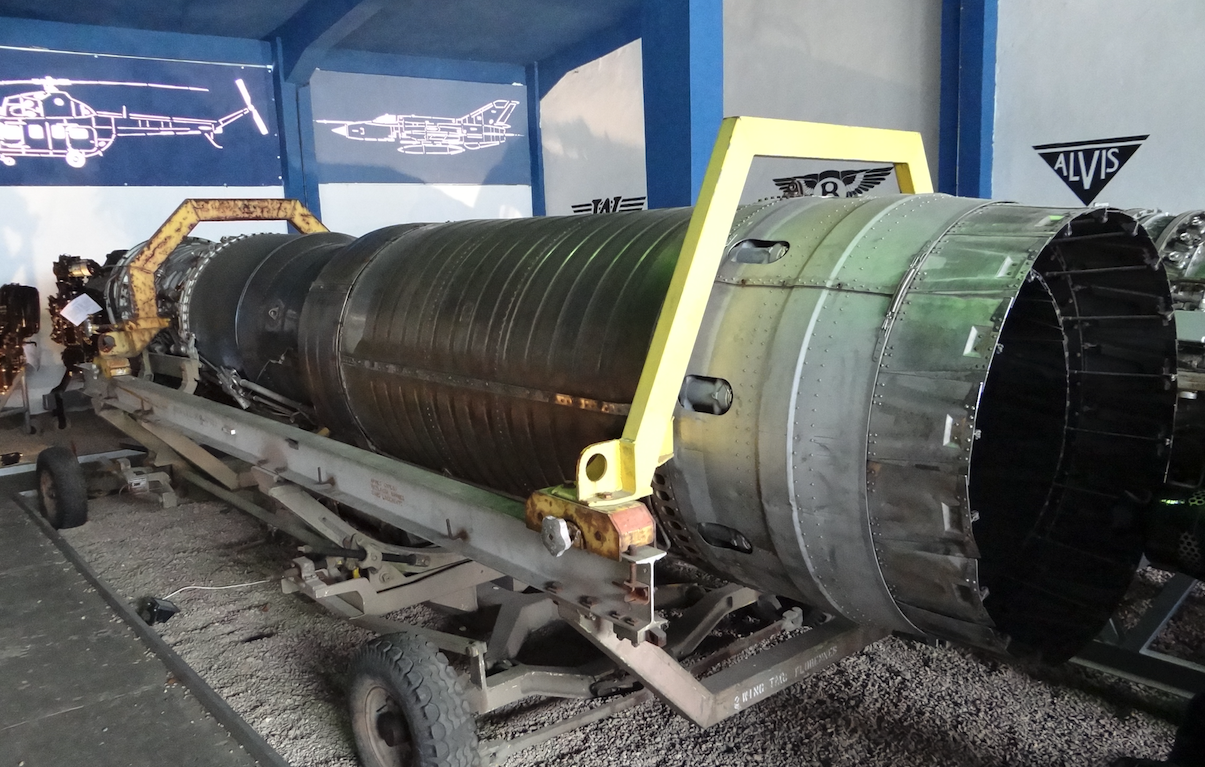Kraków 2020-11-02
Atar 9 turbojet engine
History of Snecma Atar 9. 1955 year.
In 1948, the Snecma Atar 101 engine was built. However, this engine was not very successful. Competitors: British, Americans and even Russians, in the mid-50’s were far ahead. In addition, there were no buyers to buy an engine abroad.
The French decided to radically rebuild the engine. The Atar 08 program was launched. The dimensions of the new engine have slightly improved. The compressor has grown from 7 stages to 9 stages. Compression increased to 5.5: 1. The turbine has been completely rebuilt, increasing its diameter. New alloys were introduced, including magnesium alloys. The Atar 08B-3 engine, the first mass-produced engine, had a thrust of 41.81 kN. Engine weight 1,456 kg. The Atar 8/9 engine was still a single shaft, single flow engine. The difference between Atar 8 (08) and Atar 9 (09) is the fact that the afterburner is built in.
The Atar 09 engine in January 1957 achieved afterburning thrust of 54.71 kN (12,300 lbf), and after a few weeks it had a thrust of 58.72 kN (13,200 lbf). Initially, the adjustable outlet nozzle consisted of two movable halves. Later, 18-petals were introduced, which significantly improved the work of the outlet. In 1959, a new engine starter was developed in the form of a micro-turbine, which started the engine speed under compressed air.
The next version had a thrust of 42 kN (4,282 kG), and 58.9 kN (6,006 kG) with afterburning. In the Atar 09 / Atar 9 engine, the rear section of the engine was made of titanium, which allowed for the continuous operation of the afterburner at Ma 2 speed.
Finally, work on the Atar 8 and 9 engines was successful. The engines powered several French-made combat aircraft: Etendard, Super Etendard, Mirage III, Mirage 5, Mirage 50, Mirage F1, Mirage IV.
Atar 9 engine data:
The single-flow, single-shaft engine received a 9-stage axial compressor. Compressor 5.2: 1 compression. Combustion chamber. 2-stage turbine. Afterburner. Length 5.90 m, diameter 1.00 m, weight 1,456 kg. 42.00 kN draft without afterburning and 58.90 kN with afterburning. Air flow through the engine 68 kg / s. fuel consumption 103 kg / (kN h) without afterburning and 207 kg / (kN h) with afterburning. The engine is started by compressed air generated by a starter (micro-turbine) located in a cone in front of the air inlet.
Written by Karol Placha Hetman

